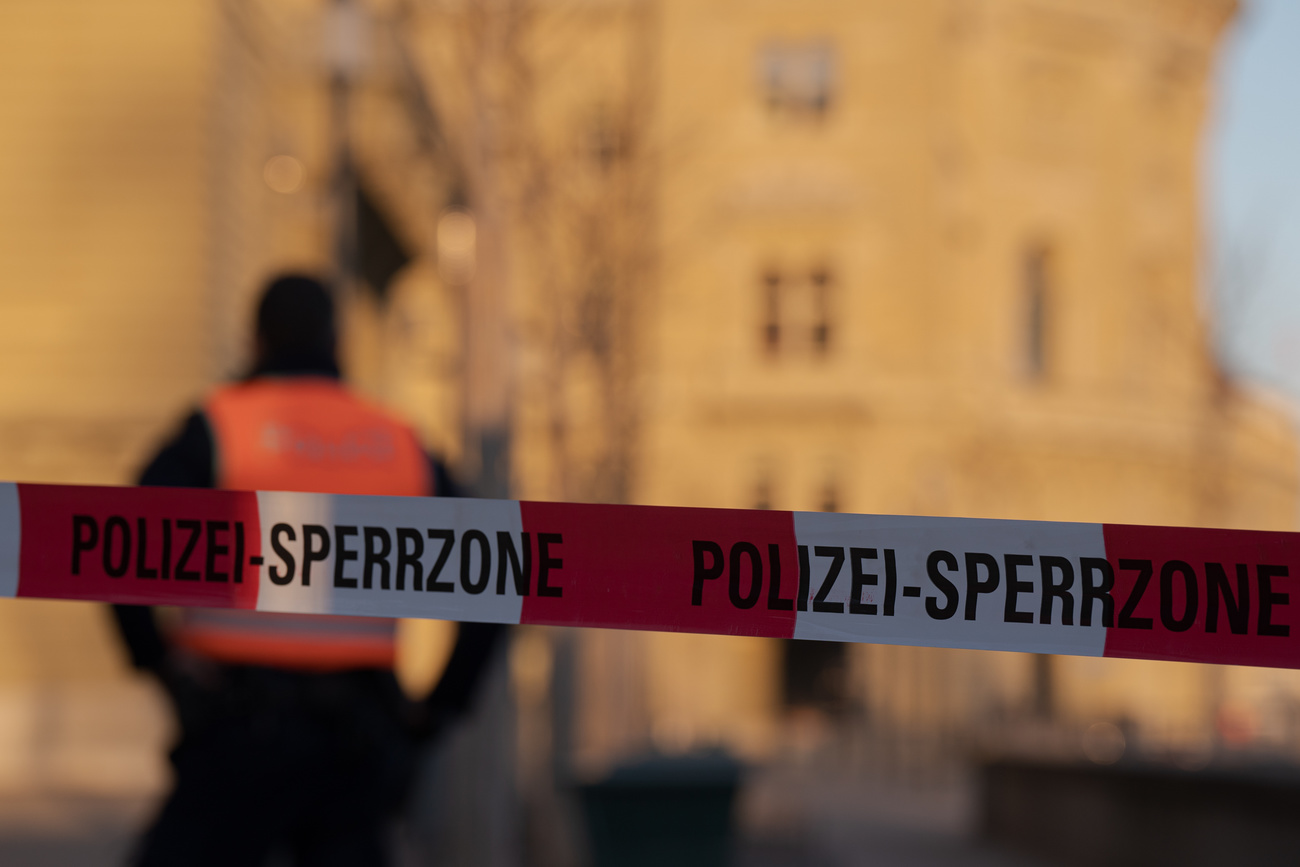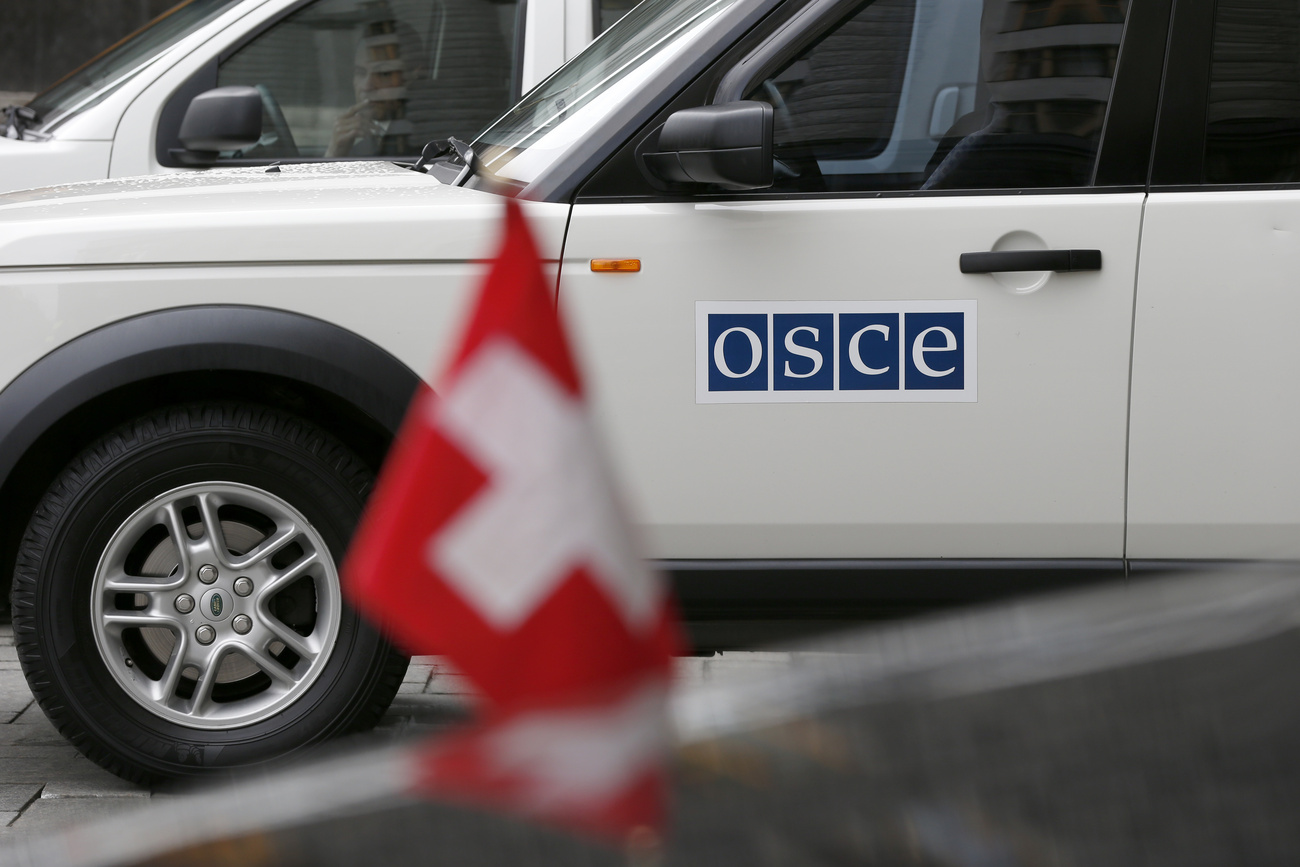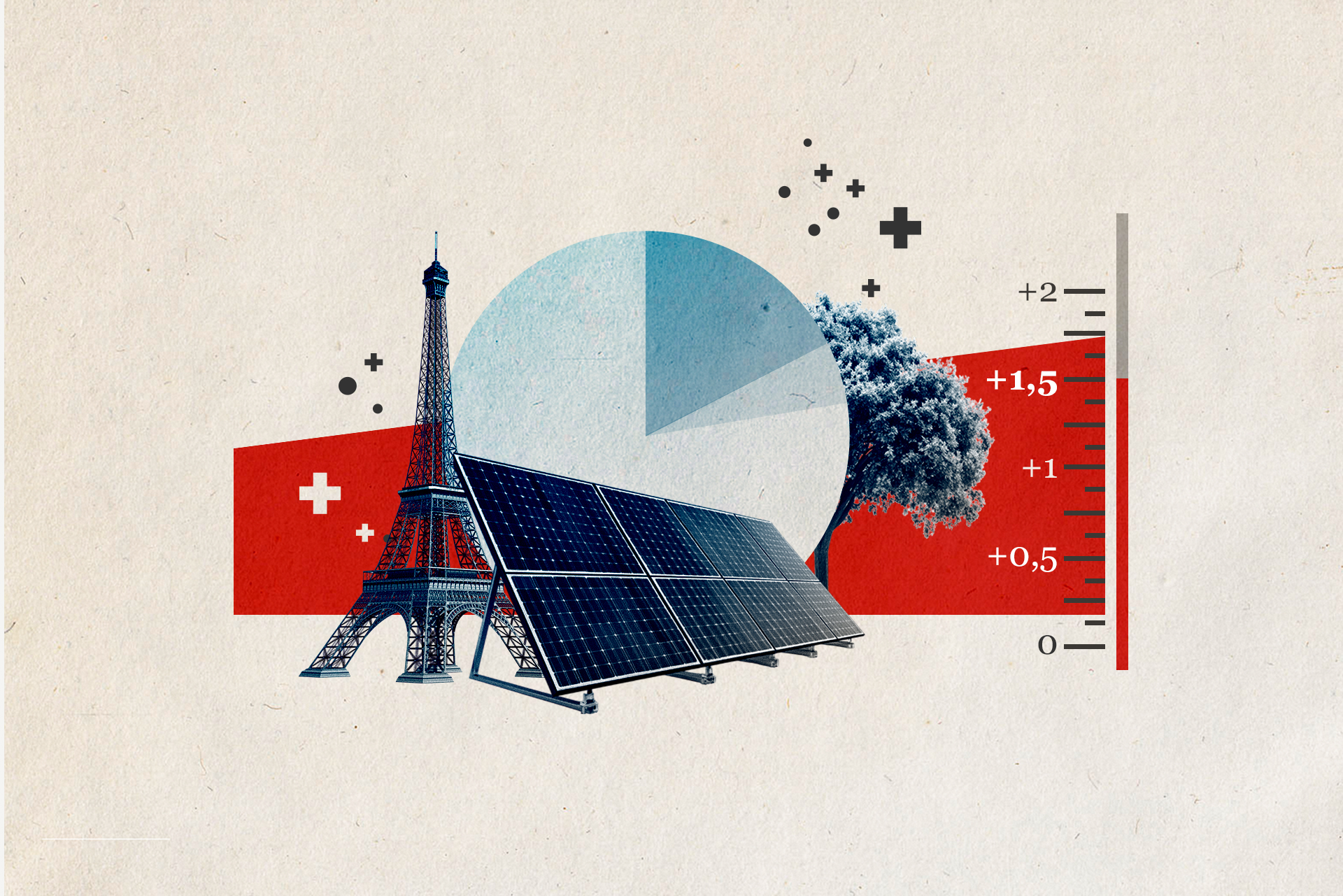
Man with explosive traces arrested near Swiss parliament

Swiss police arrested a man found with traces of explosives outside the federal parliament on Tuesday, sparking a security alert that shut down part of Bern for several hours. The evacuation of parliament was criticised by a member of the Senate.
The 27-year-old man from canton Valais, who has not been named, was stopped by security officers because of his suspicious behaviour and appearance early in the afternoon.
Officers were alerted after seeing the man wearing a protective vest and a gun holster.
A rapid test also found traces of explosives, Bern police said, although they did not specify where. They declined to comment to Reuters on a possible motive.
A car linked to the man was parked on the square opposite parliament, leading to police being called to the scene.
“Based on the knowledge already available at that time, it could not be ruled out that there were explosives in the car on the Bundesplatz [parliament square] and that the vehicle posed a specific risk,” Bern police said. “As a result, extensive security measures were implemented immediately.”
The square and surrounding streets were sealed off, while nearby buildings including the parliament building were evacuated.
After being examined by a robot, the car was found to pose no danger, Bern police said. The emergency measures were lifted at around 7pm, about five hours after being called to the scene.
The man is currently in custody with medical investigations into his physical and medical condition underway. A criminal investigation has been launched by the Swiss Office of the Attorney General, together with police in Bern, Valais and the Swiss Federal Police.
Evacuation review needed?
However, the evacuation system in the parliament building should be reviewed, according to Andrea Caroni, a member of the Senate. He said he found himself in an “ideal situation for an attack” when he and other parliamentarians had to leave the building.
“I must admit I didn’t understand the evacuation system, nor did all my colleagues,” he told Swiss public radio, RTS, on Wednesday.
When it came time to evacuate, “the doors only let us out individually, so very slowly”, he said, “and when everyone was out, we all gathered on the square without any protection. A situation he described as “bizarre”.
“This would have been the ideal scenario for an attack on all the members present,” he said.
Switzerland is known for its political stability that allows government ministers to travel unaccompanied on public transport.
However, some ministers reported receiving increased threats during the Covid-19 pandemic lockdowns.

In compliance with the JTI standards
More: SWI swissinfo.ch certified by the Journalism Trust Initiative




























You can find an overview of ongoing debates with our journalists here . Please join us!
If you want to start a conversation about a topic raised in this article or want to report factual errors, email us at english@swissinfo.ch.